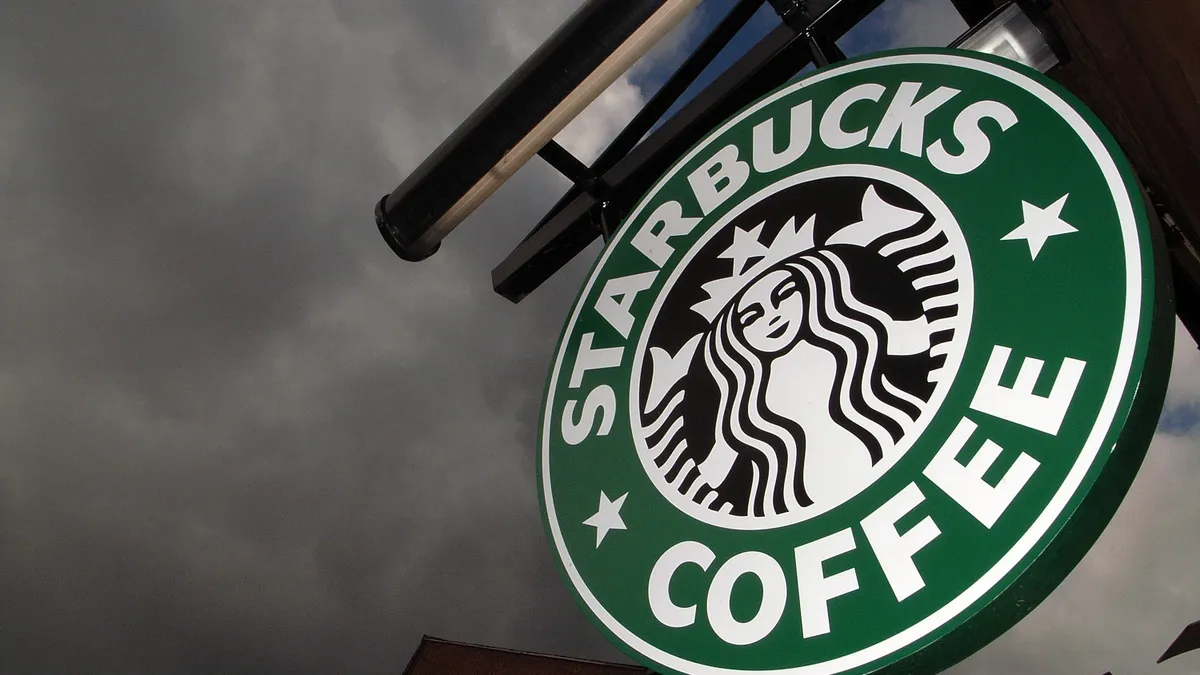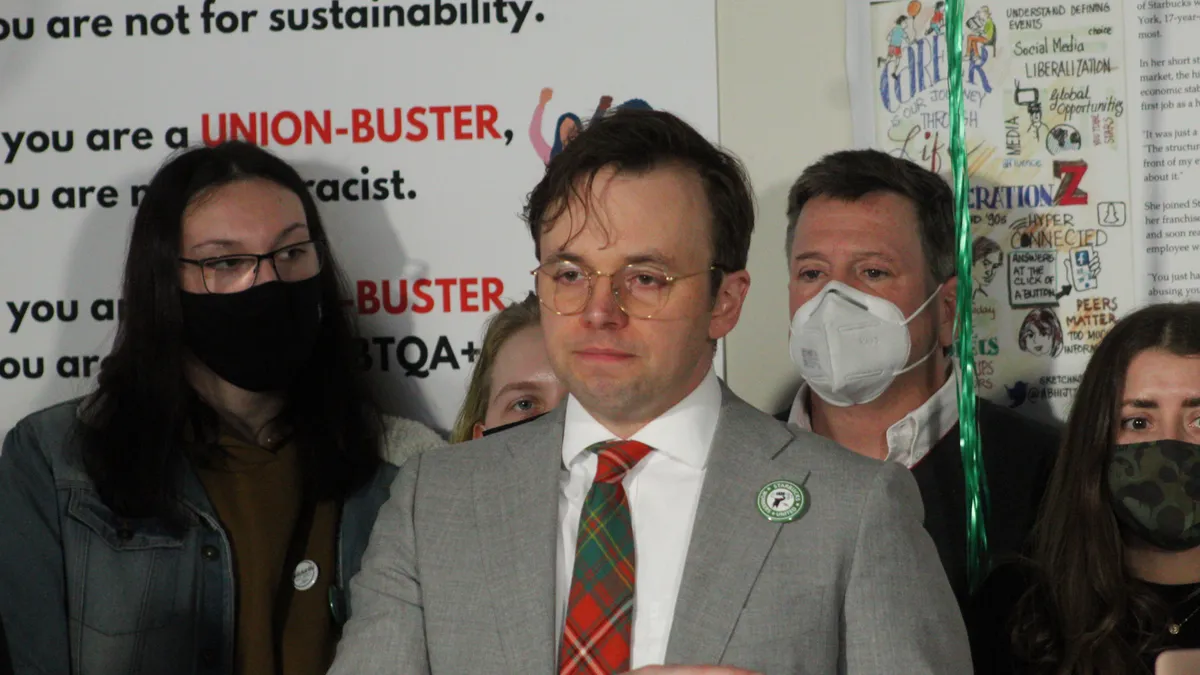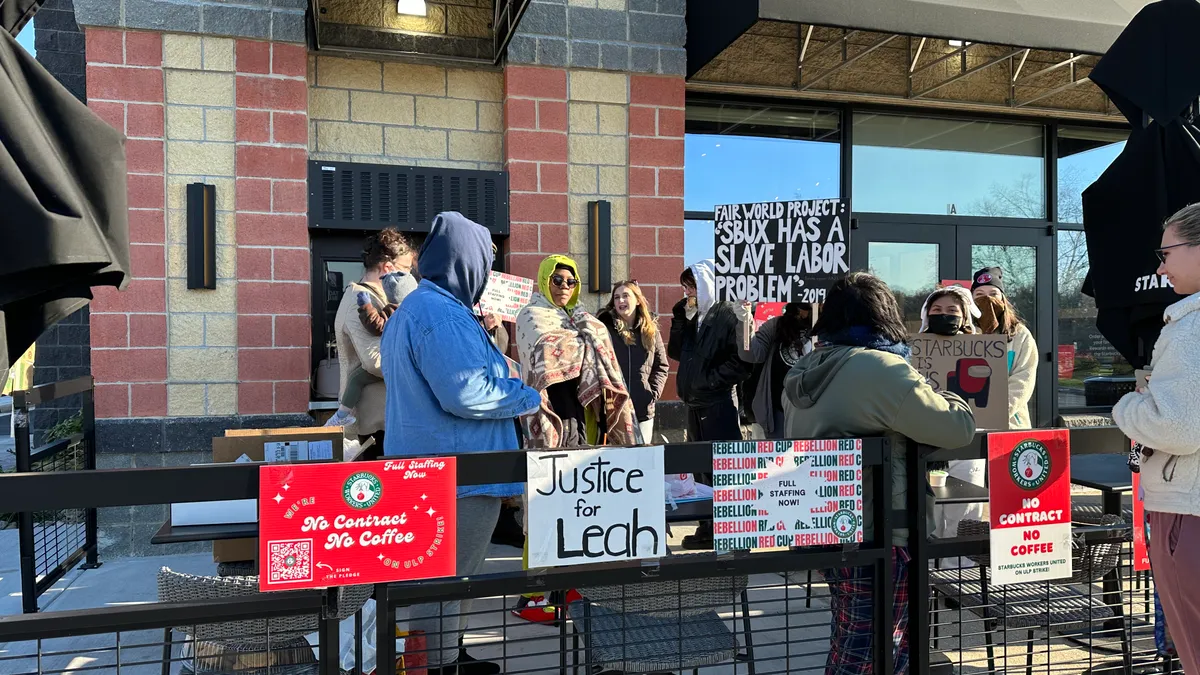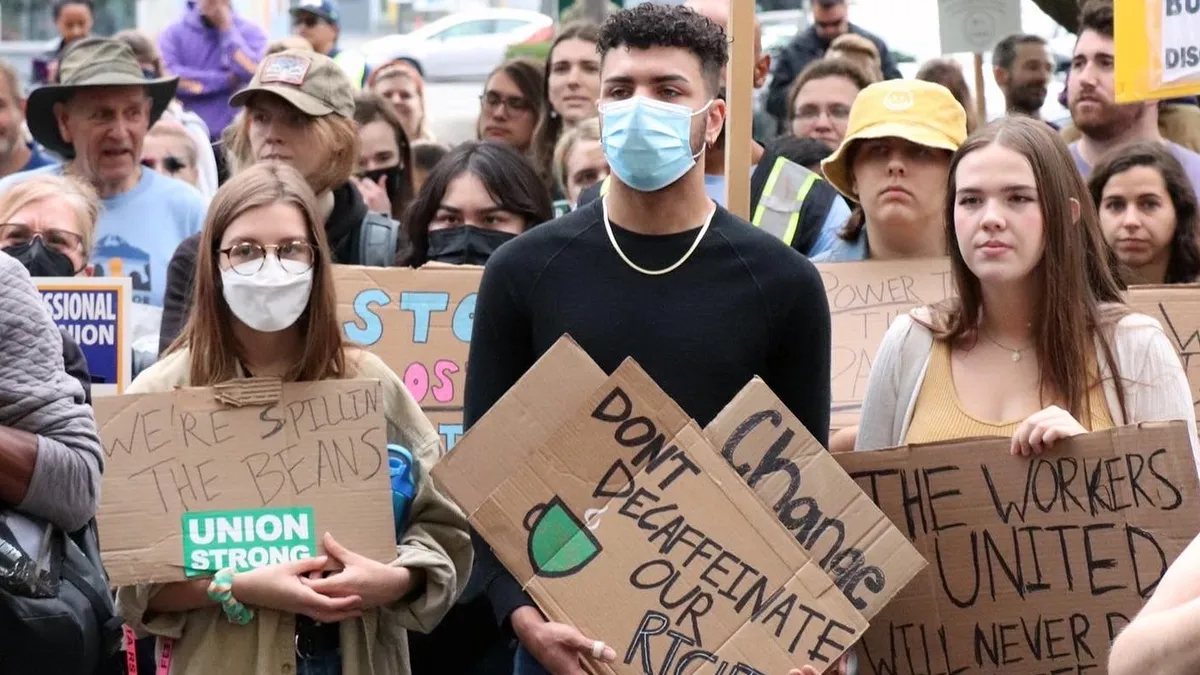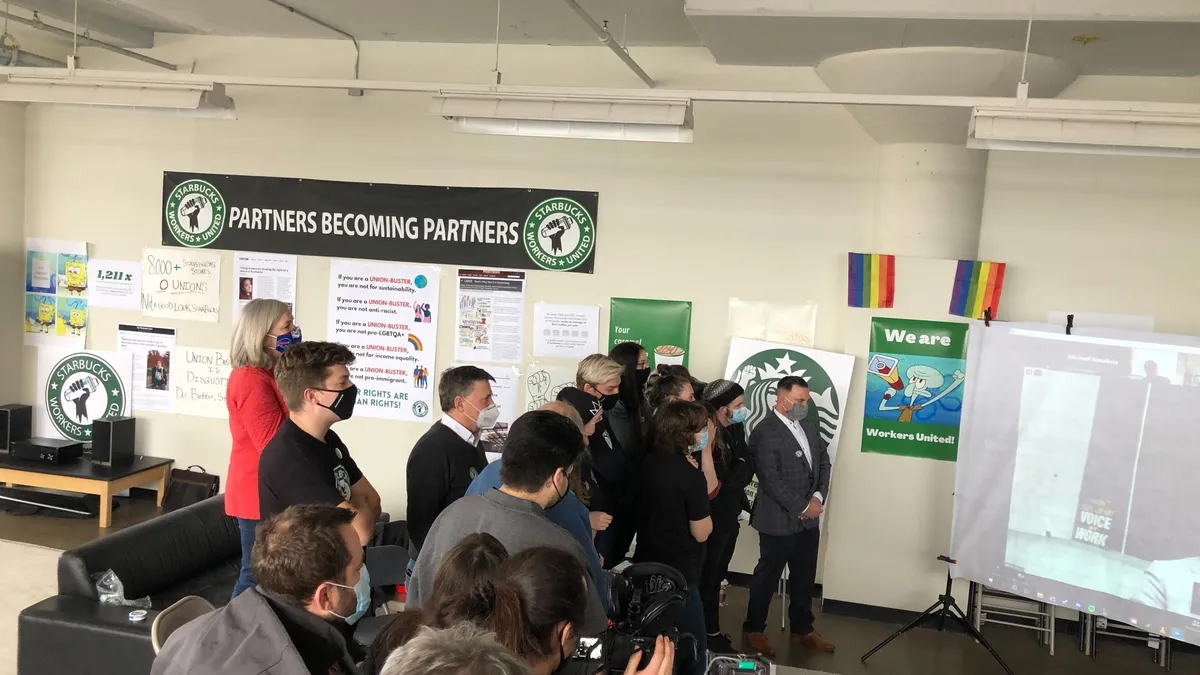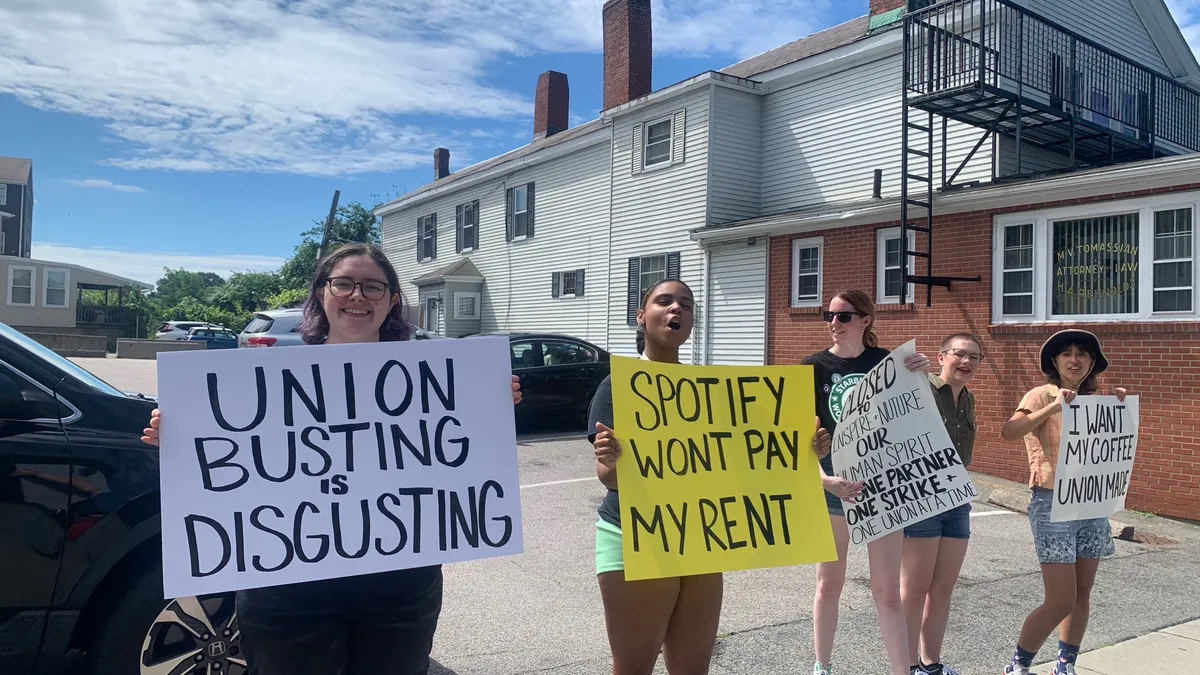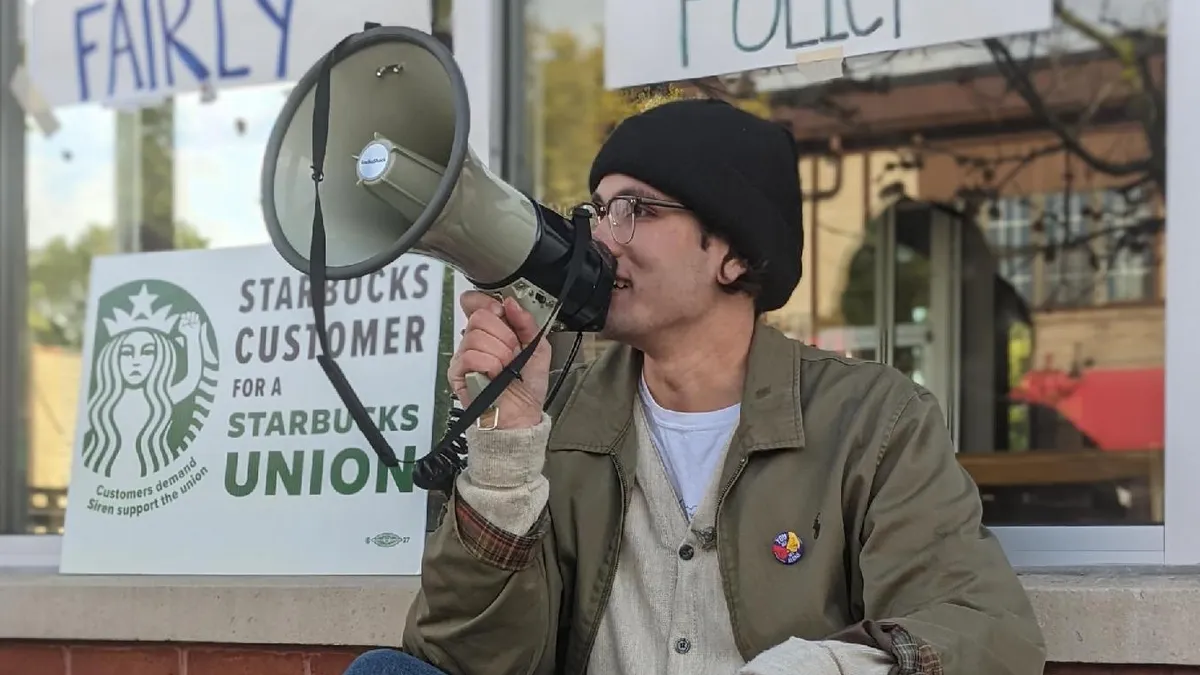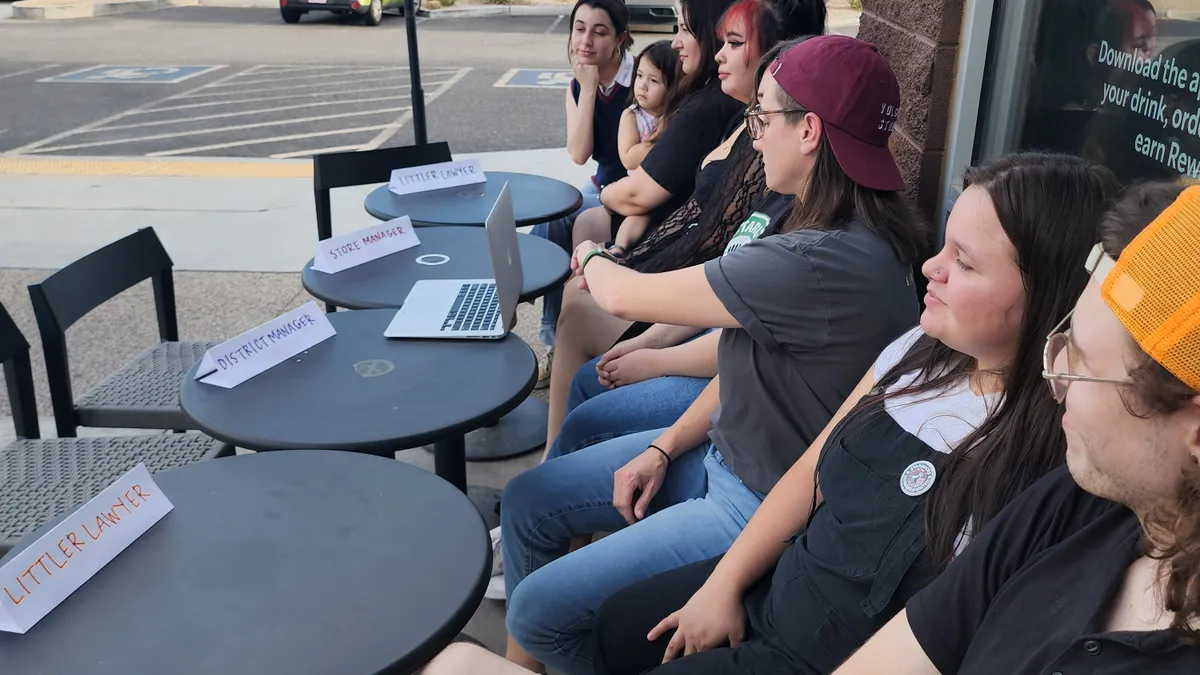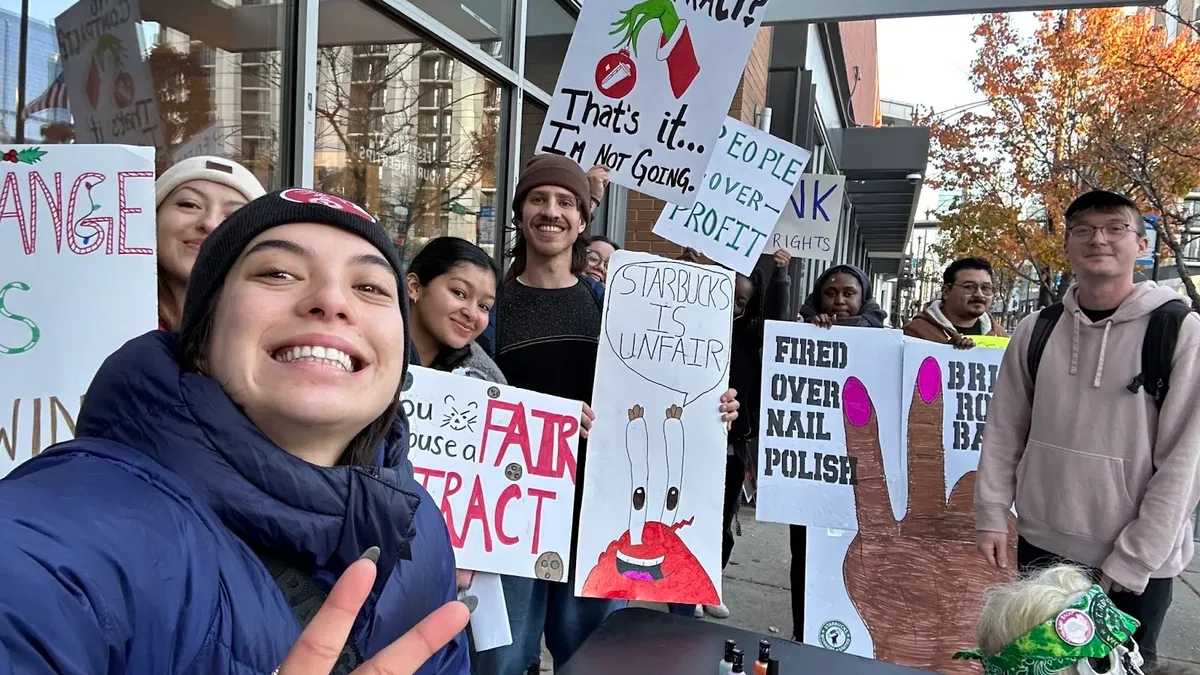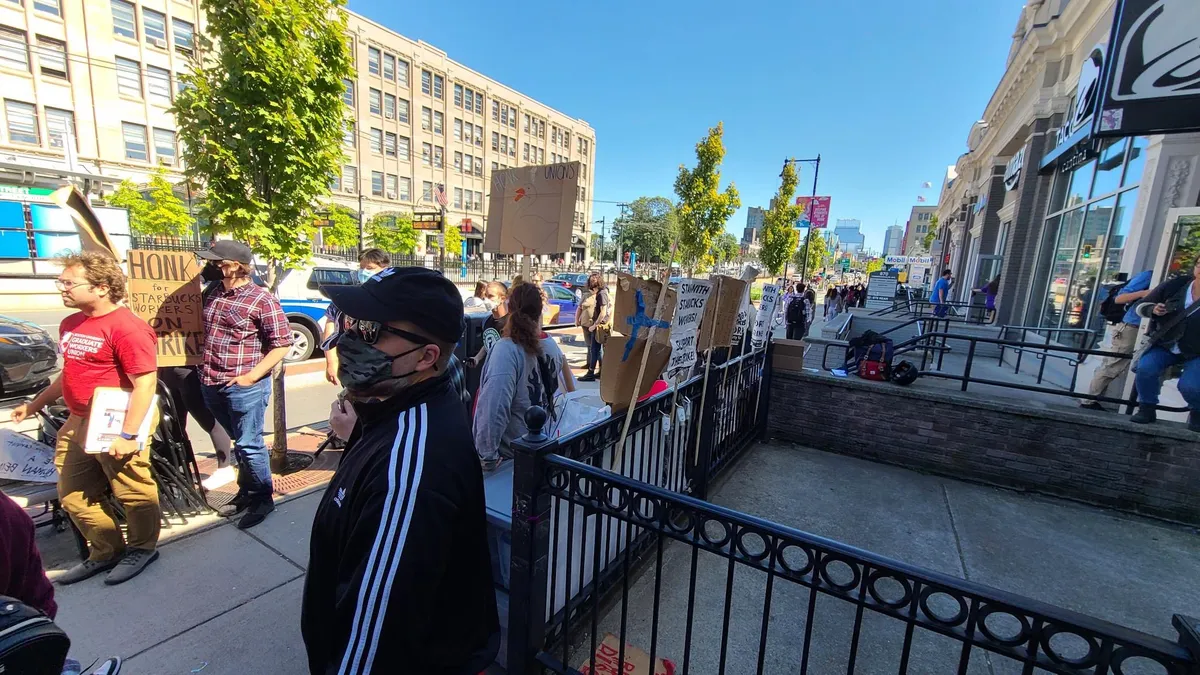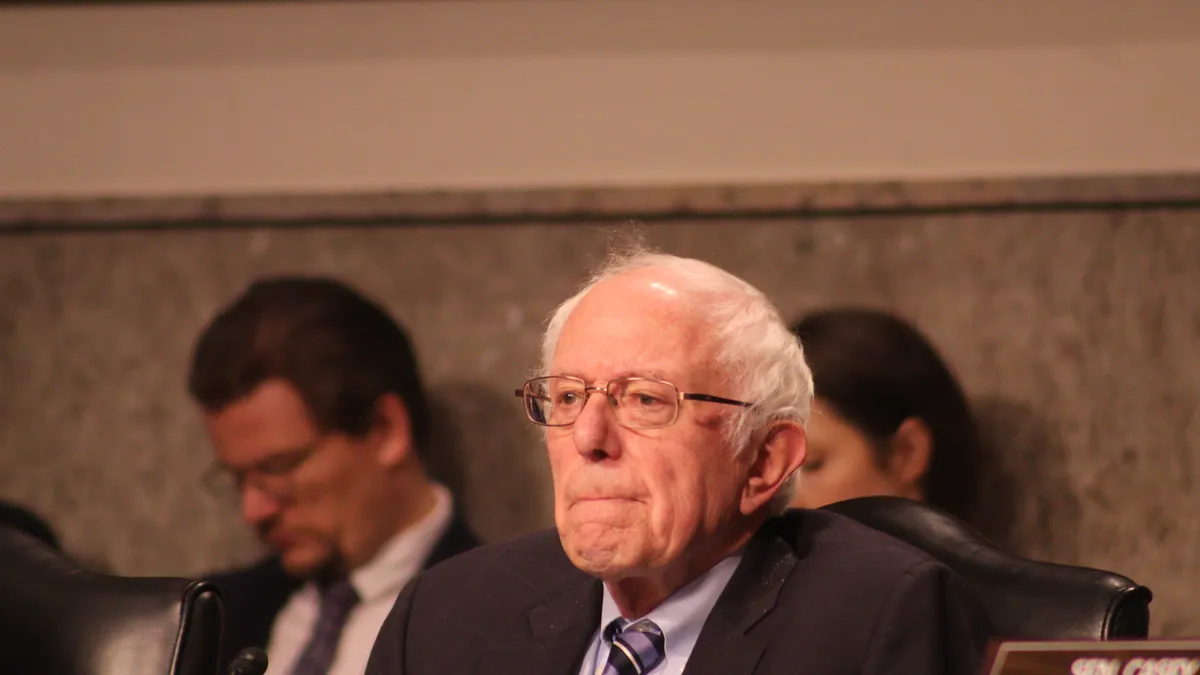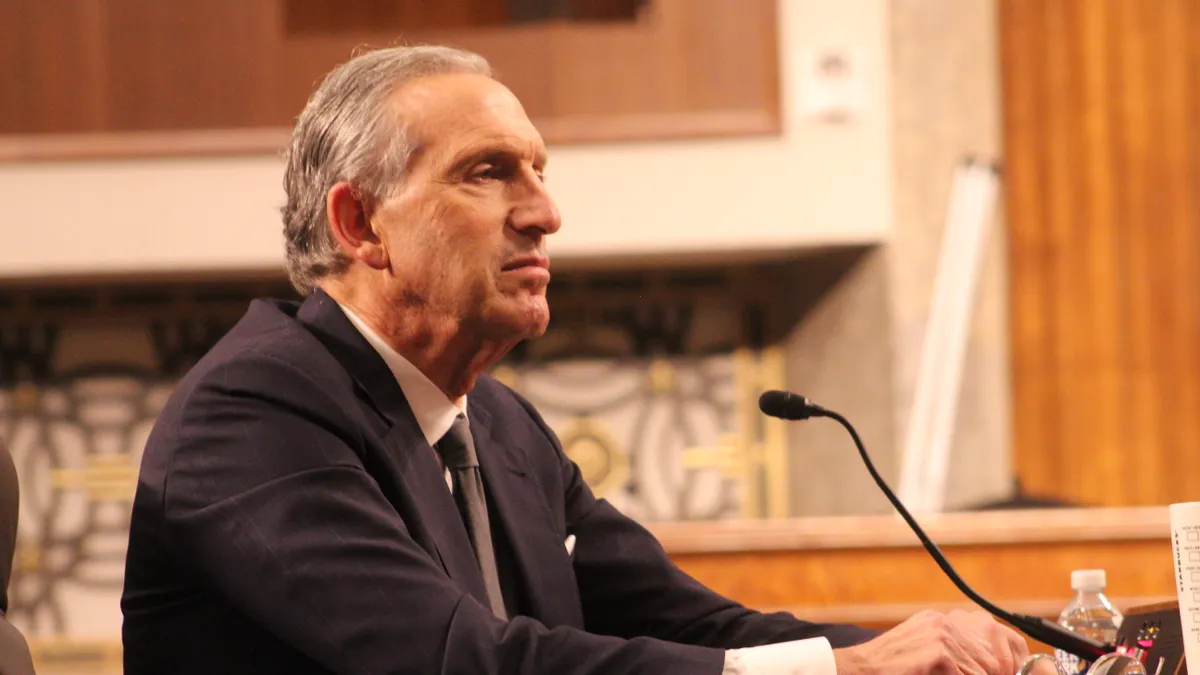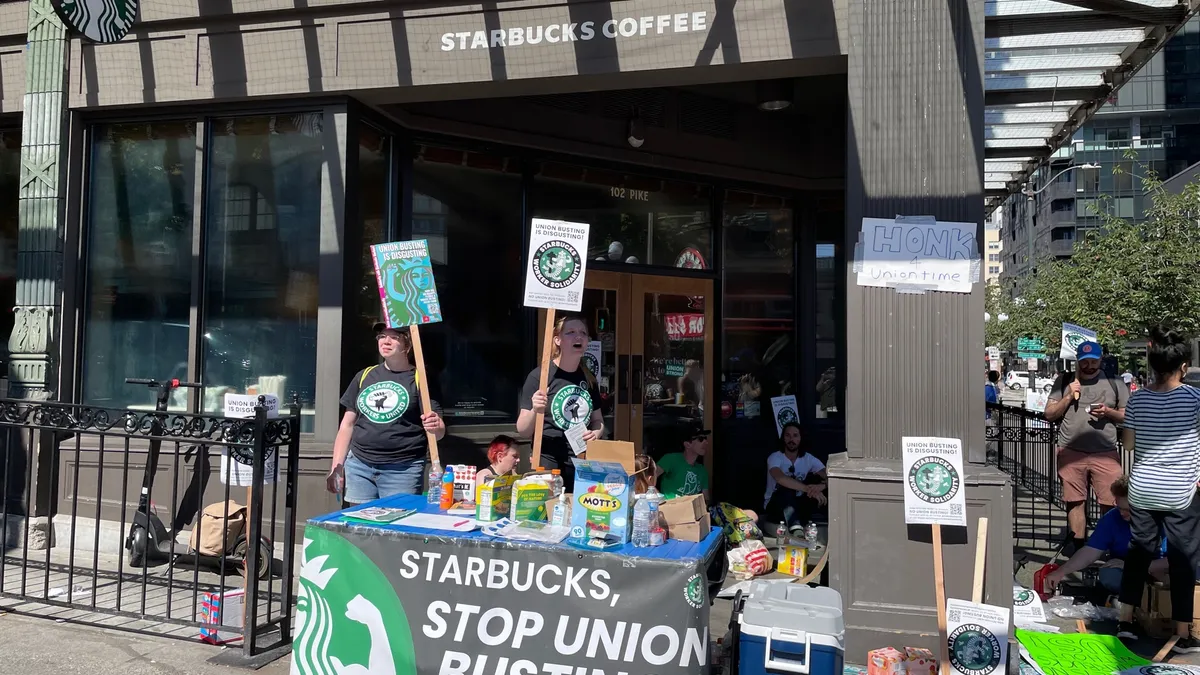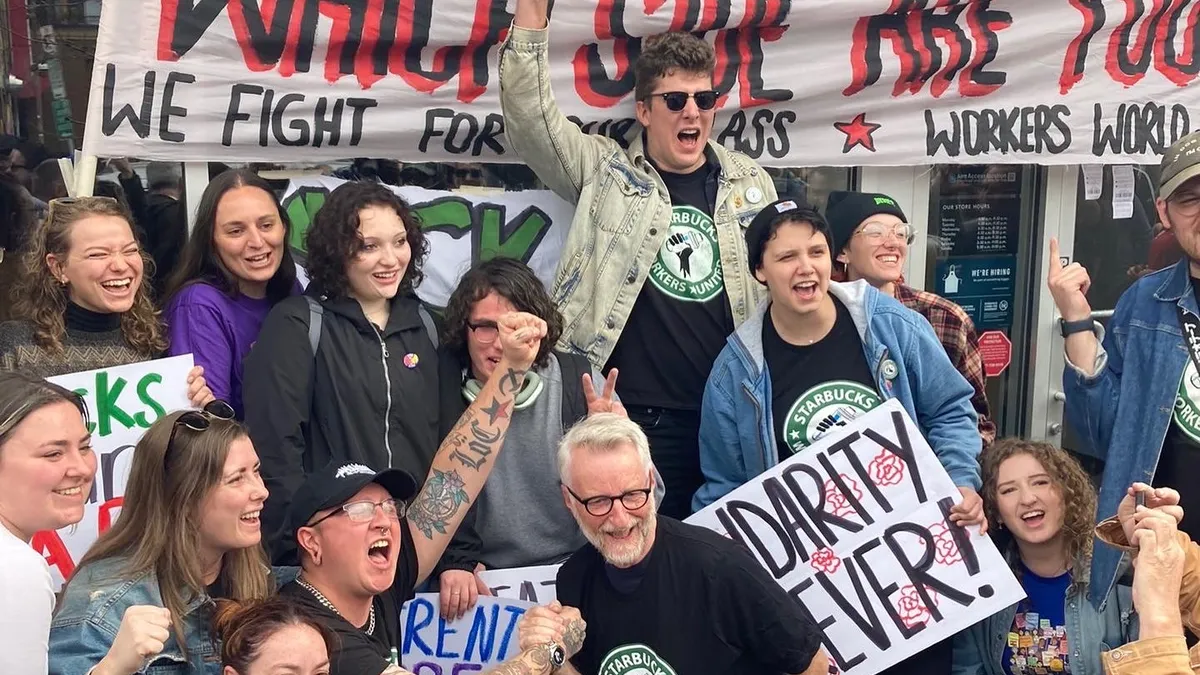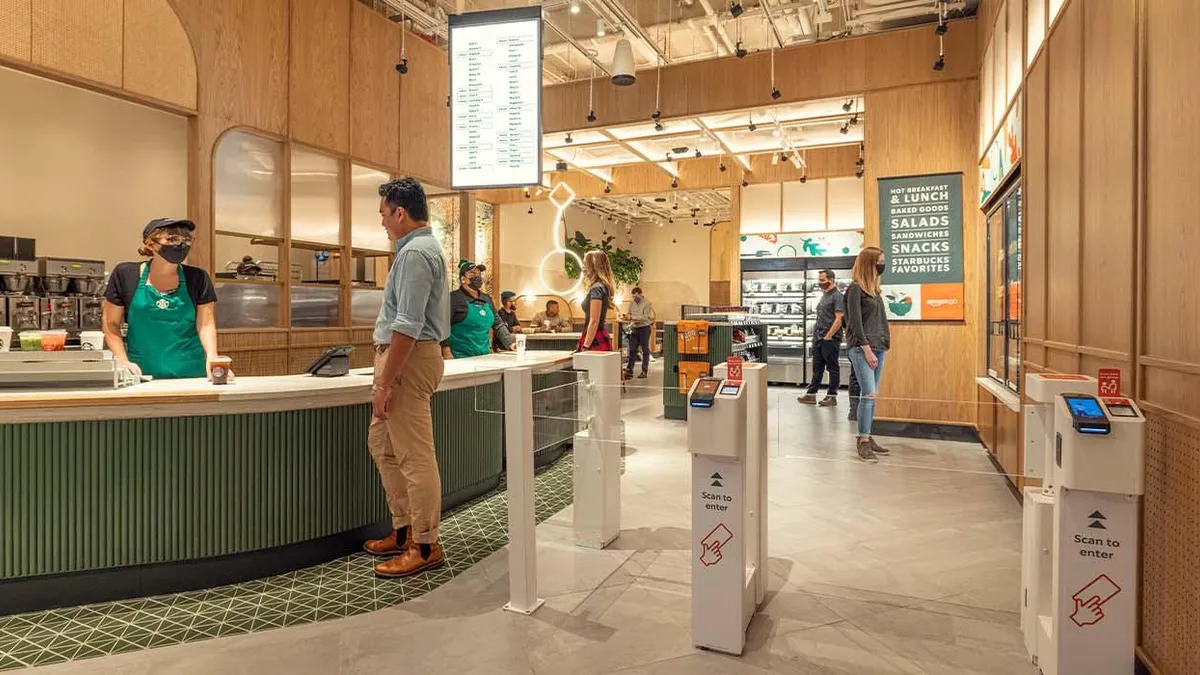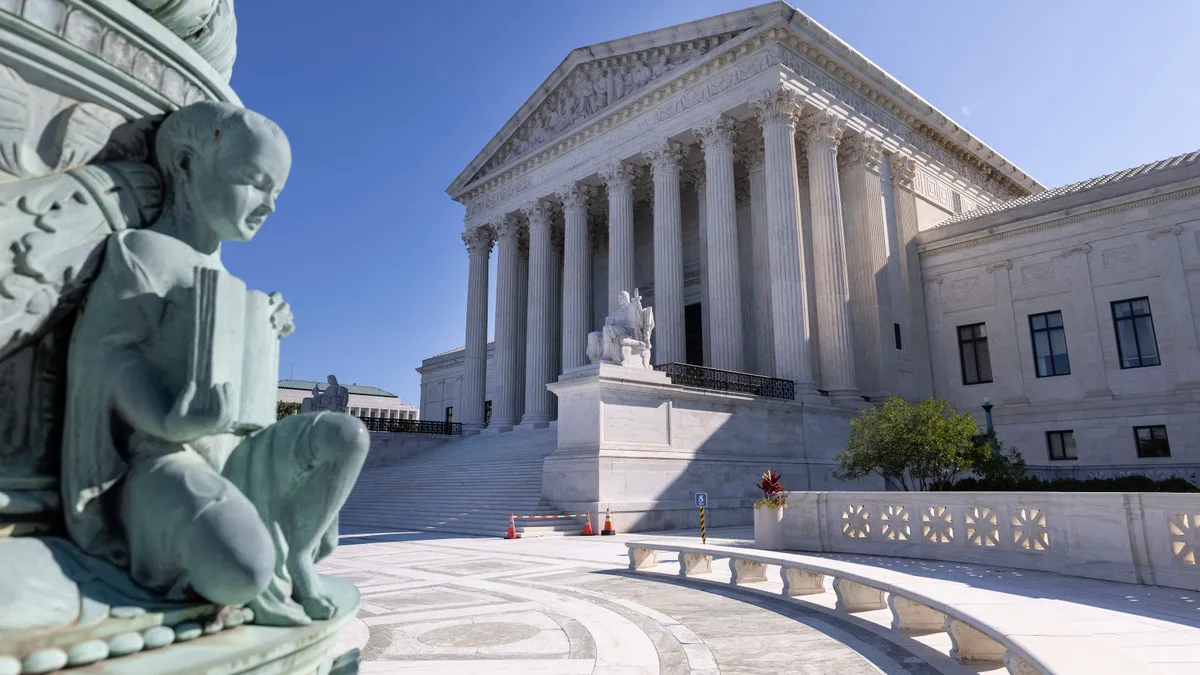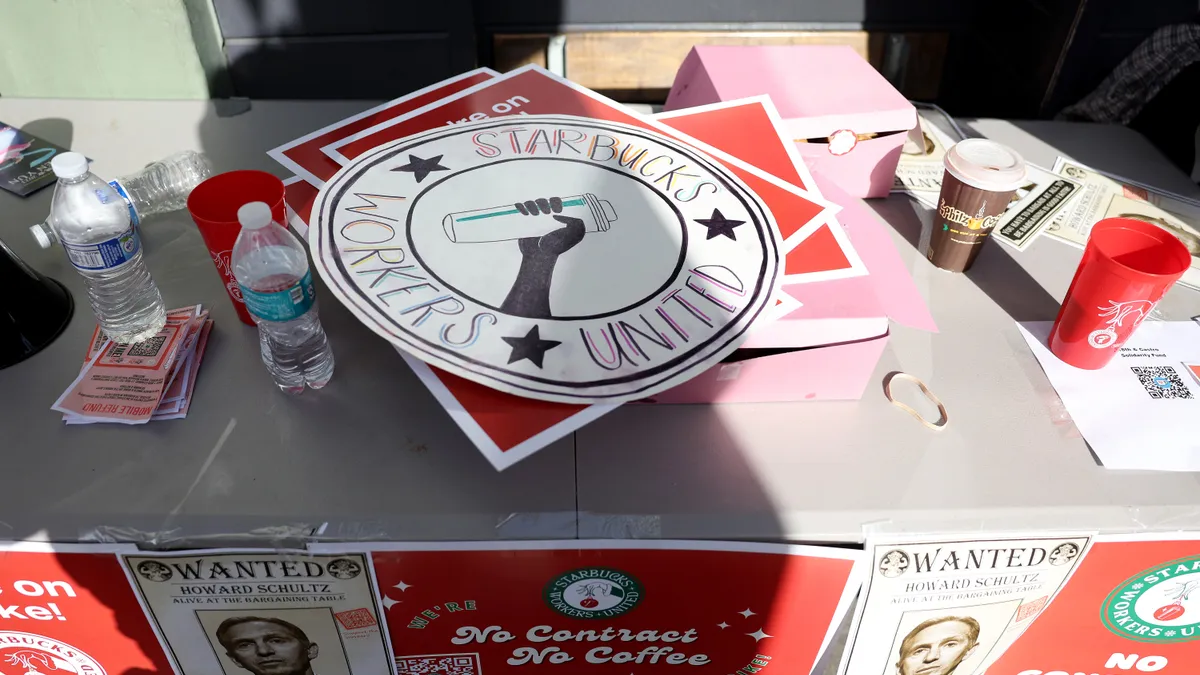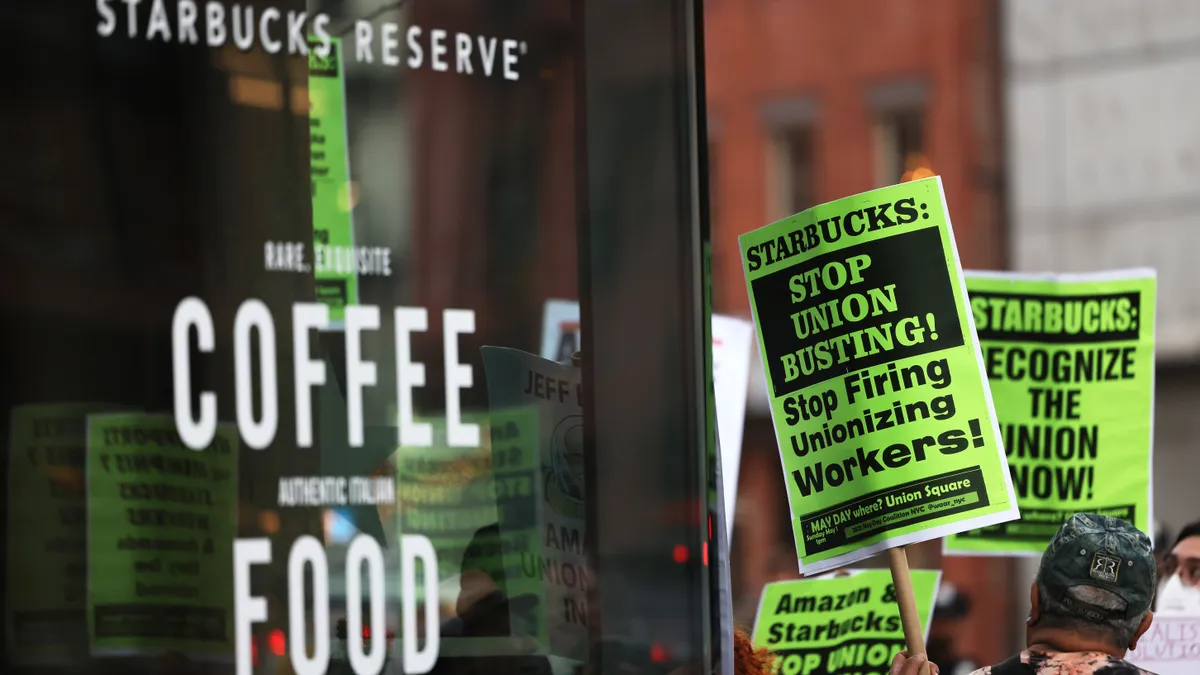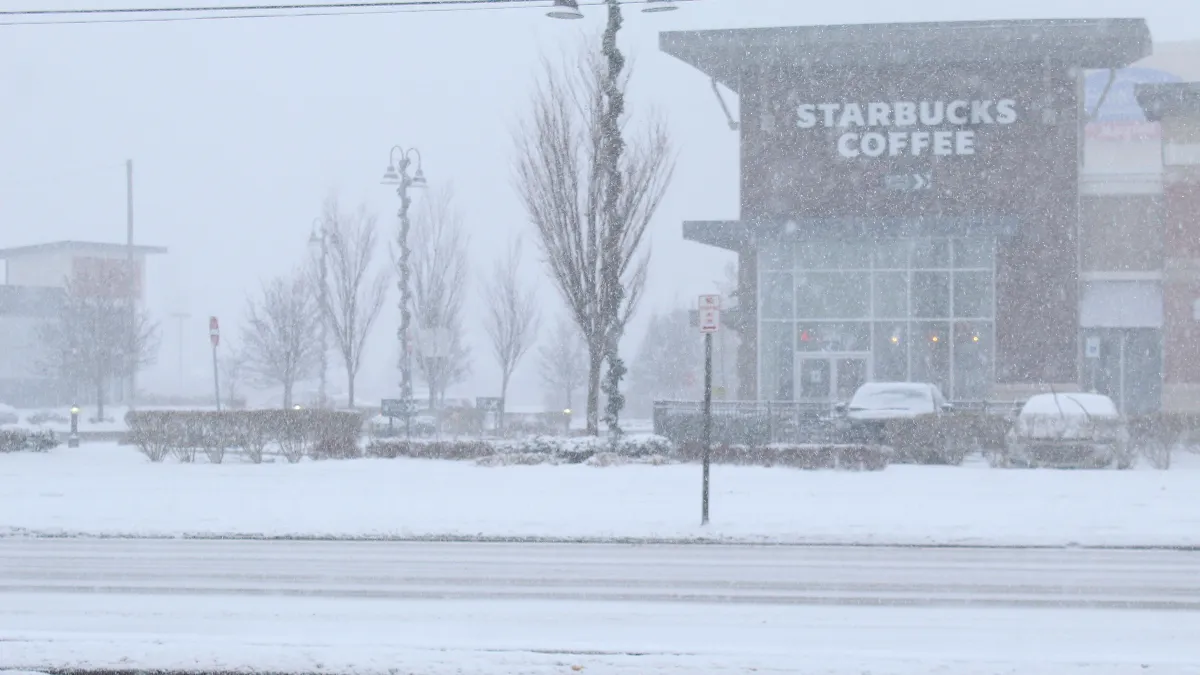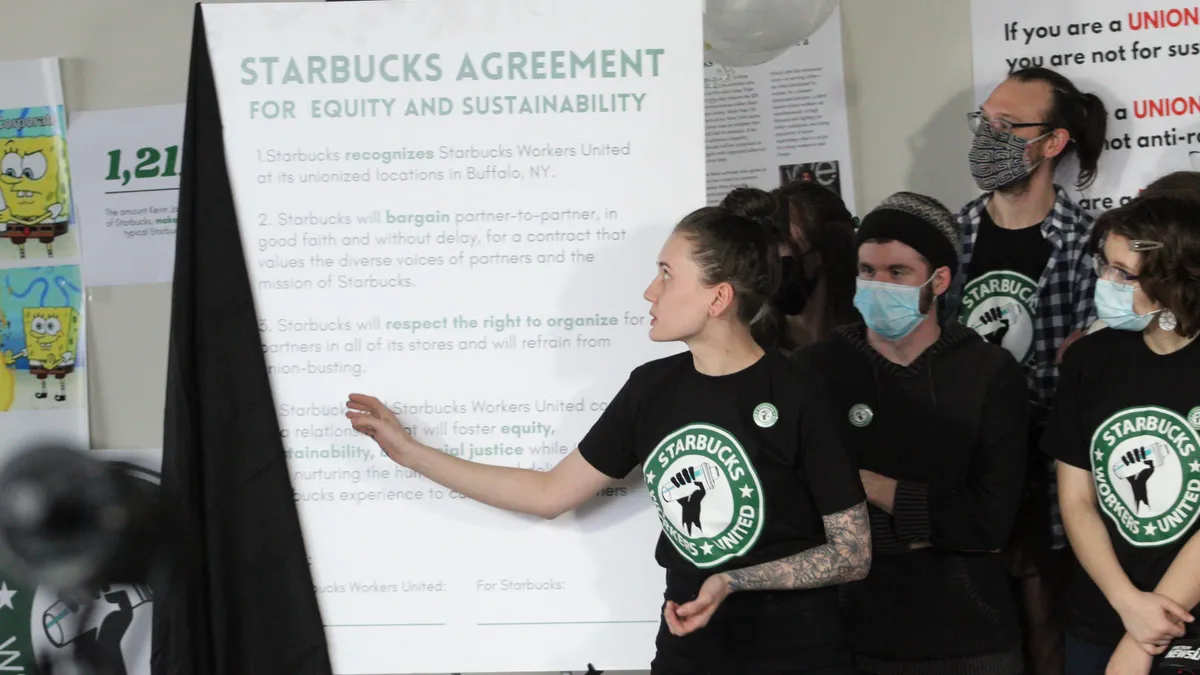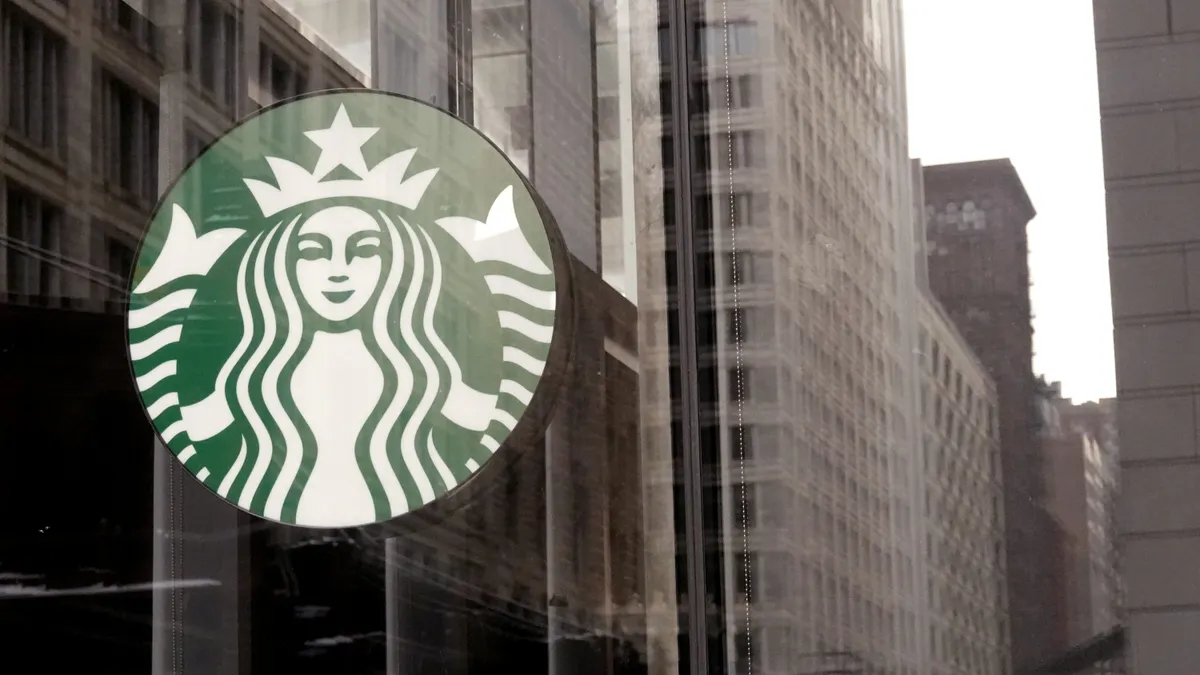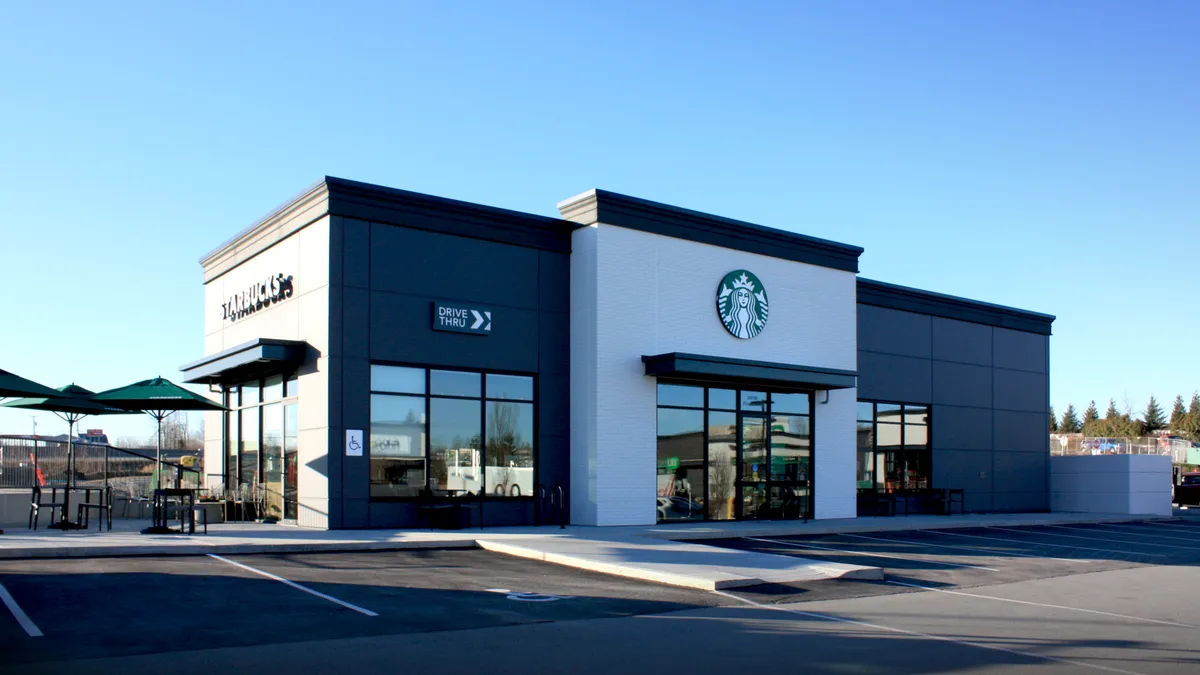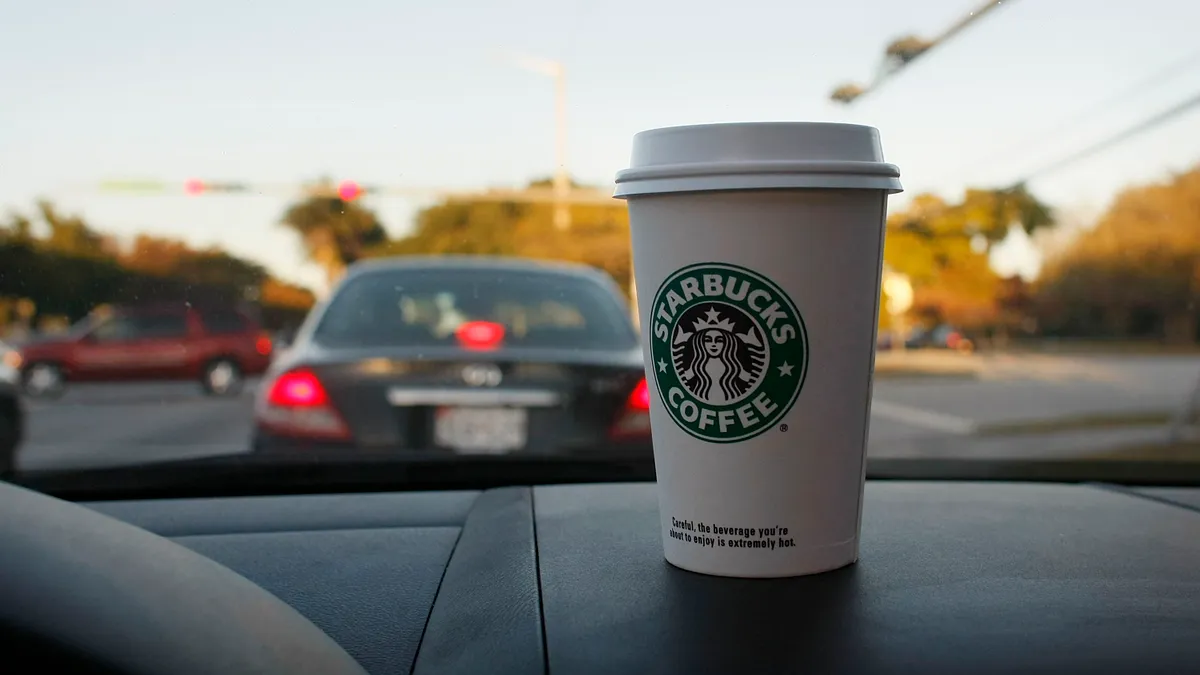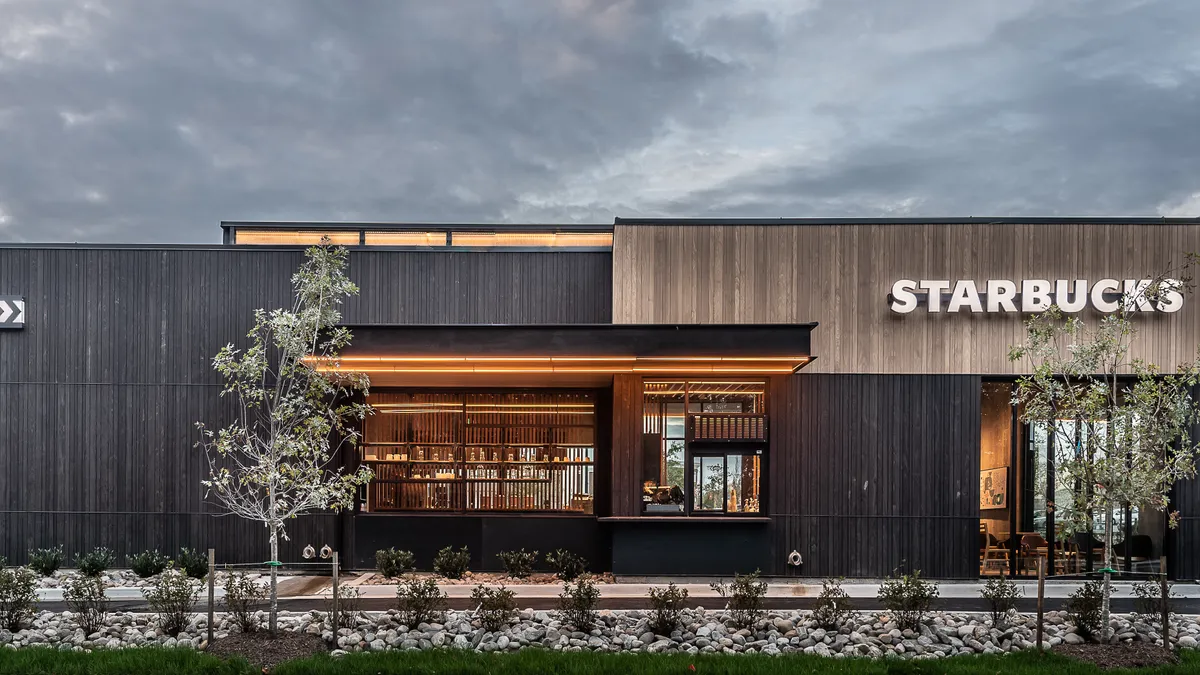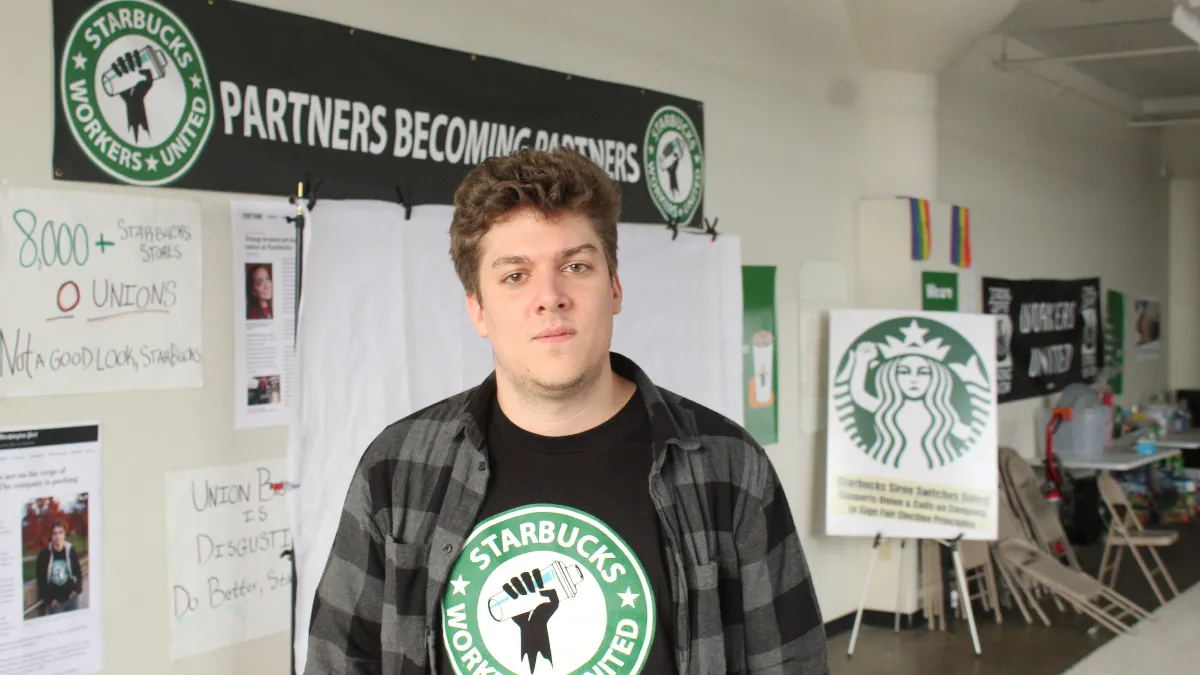Dive Brief:
- The National Labor Relations Board office in Seattle issued a complaint Wednesday alleging Starbucks’ extension of benefits to non-union workers, combined with interim CEO Howard Schultz’s public comments about unionization, constituted a violation of the National Labor Relations Act.
- The board office is seeking to force Starbucks to provide workers with back pay and benefits extended to employees at non-union stores. It also wants Schultz to record a video enumerating organizing rights granted to employees by the National Labor Relations Act.
- Starbucks has consistently argued its benefits changes do not violate labor law as legal friction between the company, the union and the NLRB heats up.
Dive Insight:
The NLRB complaint originated as a charge filed by Starbucks Workers United representatives, who argued the company was trying to dissuade workers from unionizing by excluding unionized workers from benefits announced in May. Those benefits included raises, increased training and faster sick-time accrual. An NLRB administrative law judge will hold hearings on the complaint beginning Oct. 25, according to the document.
Starbucks denied its benefits changes constituted a labor law violation. In a letter sent to Workers United President Lynne Fox earlier this week, Mary Jensen, Starbucks VP of partner resources, said the benefits changes were a mandatory subject of bargaining under federal law and that the company would not change them without bargaining, despite Workers United’s desire to waive bargaining obligations. Jensen wrote that the company would bargain over wages and benefits at the store level, in keeping with the bargaining units conducting elections.
“Because collective bargaining requires both sides to make and give good faith consideration to each other’s proposals and counterproposals, Starbucks is unwilling to remove isolated subjects from the bargaining process merely because that is what Workers United wants,” Jensen wrote. Jensen also alleged that several unspecified elections had been conducted improperly.
The NLRB complaint alleges that Schultz’s public comments related to the benefits change amounted to a threat to workers’ benefits and conditions, and that it was futile for workers to engage in collective bargaining. The complaint cited a number of statements, including the company’s Q2 earnings call.
“Compare any union contract in our sector to the constantly expanding list of wages and benefits we have provided our people for decades and the union contract will not even come close to what Starbucks offers,” Schultz said on the call. The complaint, and Jensen’s letter to Fox, are part of a series of disputes between the company, the union, and the NLRB over benefits and electoral procedures.
Starbucks alleged in a letter sent to the NLRB chair, and general counsel, that NLRB employees engaged in electoral misconduct in at least one election in Kansas. The company claims the NLRB aided union supporters in casting ballots in-person although the election was carried out by mail.
An NLRB spokesperson told Restaurant Dive the agency would not comment on open cases, and that “challenges should be raised in filings specific to the particular matters in question.” Starbucks Workers United denied any allegation of electoral misconduct.
“It's completely false, first of all, and absurd,” Casey Moore, a Starbucks Workers United member, said. “[They] are essentially trying to delegitimize the institution that's holding them accountable. There was absolutely no misconduct.”
Congressional Republicans asked the Office of the Inspector General of the NLRB to open an investigation in response to Starbucks’ allegations, in a letter sent Wednesday.
The latest complaint from the NLRB has been welcomed by Starbucks Workers United members, Moore said. The benefits changes and public statements by Schultz had chilled organizing, as workers were afraid they would be excluded from benefits changes and raises if they joined the union, she said.
Labor law experts, in previous interviews with Restaurant Dive, have argued that the lengthy process of NLRB administrative law trials, and the limited enforcement power of the agency, means complaints like this are often only symbolic wins for the union. Parties in cases before administrative law judges can appeal those cases to the full board, and then to a court of appeals, and theoretically all the way to the Supreme Court.


